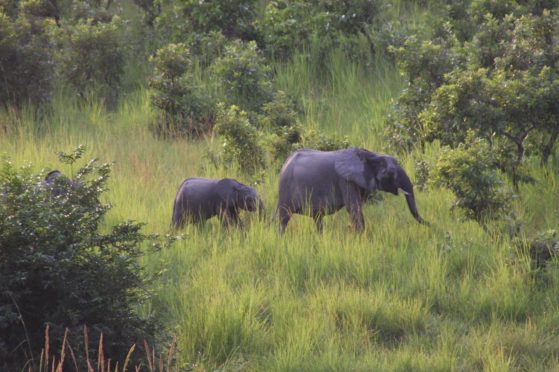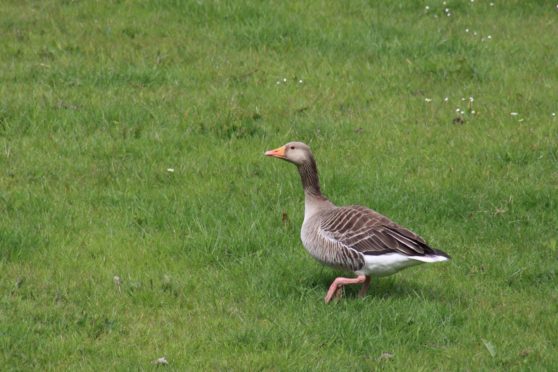Farmers in Orkney and Gabon have used gaming technology as part of an innovative project to assess how they deal with wildlife threats to their businesses.
Researchers at the University of Stirling worked with farmers in Orkney and Gabon to assess how they make decisions when balancing biodiversity with food production.
The farmers were asked to play a video game, which asked them to choose how to deal with wildlife that would damage their crops. For Orkney farmers, the threat was geese, and for farmers in Gabon, the threat was elephants.
The game asked the farmers to choose whether to kill the wildlife, scare it away, or sacrifice some crops to allow the wildlife to co-exist on their land.
Lead researcher, Professor Nils Bunnefeld from the University of Stirling, said the results provided an important insight into how farmers make decisions when balancing biodiversity with food production.
“We were surprised at the results,” said Prof Bunnefeld.
“Shooting and eradicating the animals was perfectly possible in the game, and would have been the easiest option for the farmers, because if you scare them they will come back and eat your crops. But they didn’t choose to kill wildlife, they said, actually, wildlife is a part of our life.”
He said the game helped his team better understand the factors which influence farmers’ actions towards conservation and dealing with wildlife threats.
Farmer attitudes
Prof Bunnefeld said getting direct responses on killing behaviour from Gabon farmers was difficult, because elephants are protected.
“The game provided a safe environment to explore local farmers’ propensity to engage in elephant killing,” added Prof Bunnefeld.
“In the game, we found that where the farmers felt they had a say in government policies, and where they lived near a national park and had seen local investment, they showed more tolerance for elephants than farmers who felt they had no say in management, and those that lived near logging concessions.”
Likewise, attitudes towards geese in Orkney were influenced by financial rewards available for pro-conservation measures.
“Farmers who thought financial compensation for goose damage was unequally distributed in Scotland were less likely to sacrifice crops for geese,” said Prof Bunnefeld.
Financial incentives
The video game included the introduction of different financial incentives – these included increasing payments for the size of land spare for wildlife, and a fixed payment through subsidies – which was shown to encourage pro-conservation behaviour.
“It was the interaction with trust and equity issues that showed the biggest shift in behaviour,” said Prof Bunnefeld.
“Policy makers tend to focus on investment and financial reward for farmers, but this research showed trust in those making decisions, and having a say in policy and management, was as important.”
The research was carried out in conjunction with the Gabon National Parks Agency.












